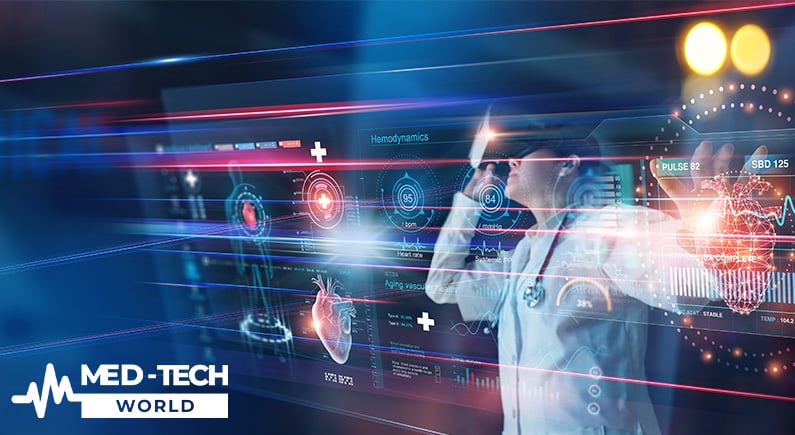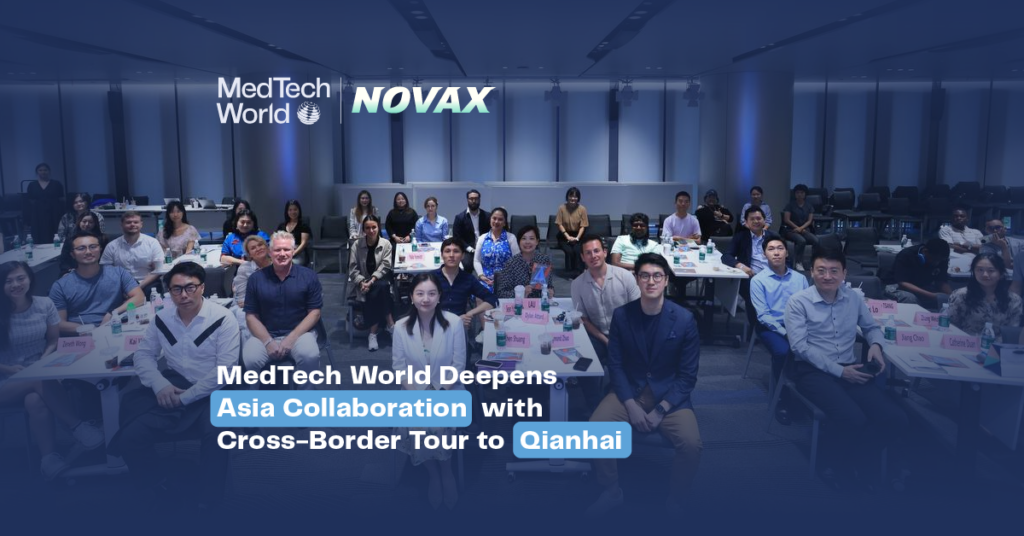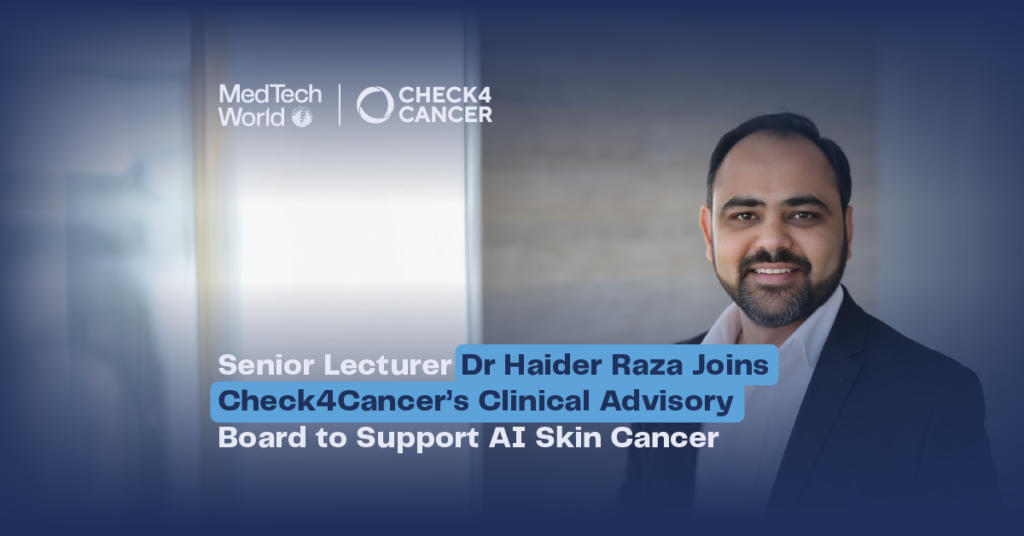
Michael Joe Cini
8th March 2023
The Augmented Doctor: A Paradigm Shift for Healthcare
The role of AI-driven technology in healthcare has long been of interest. Augmenting the skills of clinicians in administering patient care is one of the most talked about aspects of health tech, with experts predicting the growth of AI-based technology as a valuable tool in diagnostics and patient care. This was extensively explored at the Med-Tech World Summit in Malta last November.
In a bid to explore the opportunities and challenges that professionals would face in this emerging field of medical technology, The Augmented Doctor: A Paradigm Shift for Healthcare was hosted as a panel session at Med-Tech World’s November show in Malta. The session’s moderator was Dr Joel Brown, MD, Medical Director and Chief Medical Officer at Bionabu, a global network aiming to connect experts, med tech entrepreneurs, and professionals remotely to drive innovation. Dr Brown is also a General Practitioner working in the United Kingdom.
Joining him were the following experts: Hugh Harvey, Managing Director at Hardian Health; Frank Pfister, CEO at DeepC; Georgi Kostadinov, Co-founder and CTO at Kelvin Health; Lilac Mandeles, Board Director of Meuhedet HMO and CEO at TechforCann; and Ashwin Venkatesh, Clinical Consultant at Nodr.
Besides answering questions, the experts suggested possibilities and possible trajectories that practitioners and institutions could explore in this new field. We look at the highlights from the discussion below.
Highlights from the Paradigm Shift
Where can the concept of the augmented doctor be applied?
Describing how technology was being integrated into MedTech at Meudhedet HMO, Lilac responded: “We originally implemented a hybrid OR for children, which was sped up by the (advent of the) coronavirus, enabling digital interactions between patients and physicians. However, they weren’t effective enough. So, we have coupled with an industry medical device called Tito, which can show everything the doctor needs to see – from the ears to the mouth to the entire body. So, it gives doctors an accurate, online visualization (of the patient) and other vital signs such as temperature. Patients bought the device at a subsidized price, and it improved the effectiveness of digital interactions.”
On how it was being applied in radiology, Frank Pfister of DeepC commented: “I think it’s quite interesting; radiology is probably the most advanced discipline in terms of AI adoption. In 2021, there was a fear of radiologists being replaced by AI. However, what has happened is a mindset shift where radiologists who use AI tools will replace those who choose not to adopt the technology.” Hugh Harvey of Hardian Health agreed, adding that “multiple AI products are currently being targeted at every single type of imaging that radiologists look at, and every kind of pathology within those types of imaging.”
As regards the paradigm shift in healthcare, there are clinicians who still resist this change. How do we convey the message to those who are still sceptical that this technology can help us (clinicians) deliver clinical care?
Lilac: Change is difficult. And with most new things, there is an adaptation phase. I think the coronavirus helped us in persuading clinicians that it is important to be open to this technology. It is not going to take over (from humans); it’s only going to help clinicians to be more effective and more accurate. I think that we’ve seen, all the time, that the rate of adaptation is growing. Not just young physicians, but also veteran physicians are embracing it.”
She emphasised the importance of education in adopting new technologies: “There needs to be an education plan around this. Our HMO has a whole unit dedicated to education and assistance with digital implementation.”
Georgi Kostandinov, having a vast knowledge on the impact of AI-based technology in healthcare took on Brown’s question on how AI technology can help the clinicians on the frontlines.
Georgi: “In our opinion, AI technologies, as I mentioned earlier, should be integrated within the clinical practice as much as possible because we have a huge patient demand for them, due to various kinds of medical conditions currently active. For example, the COVID-19 pandemic proved to us that healthcare systems aren’t optimized enough, and (in this case) having AI will bring accelerated decision-making within clinical practice and improve the diagnostic processes even further.”
He commented on the adoption of innovations in clinical care: “In my opinion, in terms of whether medical specialists will be open (to these technologies), this will stem from demand from the patients. If patients require innovative technologies, then specialists will have no choice but to use such at some point.”
In the MedTech space, it feels like everyone is constantly innovating and developing new technology. However, we have to devise a means to identify and use technology that is useful, regulated, and not harmful to patients. How do we go about this?
Hugh Harvey: “If a clinician wants to use a drug or piece of equipment, they will have to procure it through the hospital. It’s going to be the same for health tech. These would have to be procured by health systems, not individual doctors on individual use-case bases. And for hospitals to do that procurement, they will want to see clinical evidence and health-economic evidence to show that it improves patient outcomes and is cost-effective – ideally, both.
The other side is the non-hospital-based technology – the patient-facing stuff, such as health apps. There are movements to create a segregated place for clinically approved apps. They (app stores) are like pharmacies – they are distributors of legally regulated medical devices and need to be displayed as such.”
Hugh Harvey also commented on the importance of education in adopting new technologies: “For practitioners, there needs to be a period of education, and this needs to be incorporated throughout training – at earlier stages in medical school, and in general practice training. In the radiology world, we now do AI technology training. The same thing will happen in other specialities, such as general practice.”
How can clinicians leverage their clinical skills to partner with others in the med-tech space?
Ashwin Venkatesh: “As a junior doctor in London, it’s increasingly a trend that we have to get involved in audits, management, research, and other areas that touch on how we can improve the quality of the services that we deliver. Innovation is quite a natural extension of that. Daily, my colleagues and I are faced with inefficiencies that we struggle with, and so looking at new devices and technologies that are coming into the space is quite exciting.”




